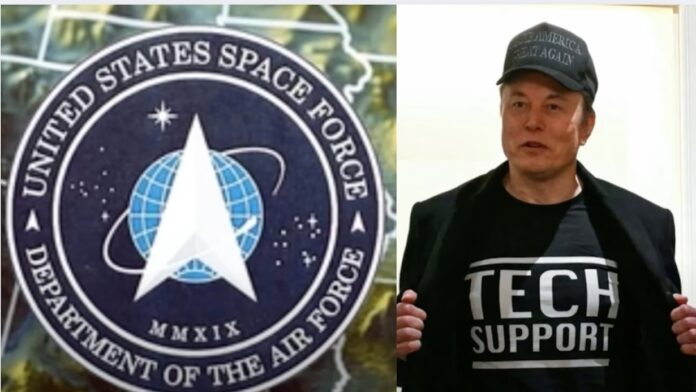- The U.S. Air Force canceled a multi-billion-dollar rocket cargo project with SpaceX following pressure from President Trump.
- Environmental concerns over sensitive wildlife habitats at Johnston Atoll contributed to the decision.
- The cancellation raises questions about the future of military-private space partnerships and SpaceX’s role in defense contracts.
In a dramatic move with global implications, the U.S. Air Force has canceled a multi-billion-dollar rocket cargo project with Elon Musk’s SpaceX following direct intervention from President Donald Trump. The decision comes amid growing political pressure, environmental concerns, and heated debate over the future of military-private sector partnerships in space.
The project, once hailed as a game-changer in rapid logistics and national defense, has been shelved for now—marking a stunning setback for SpaceX and an unmistakable signal of Trump’s lingering influence over military priorities.
Trump’s Word Shuts It Down
Sources close to the matter say the former president personally urged Pentagon contacts and Republican lawmakers to pressure the Air Force into halting the project. Trump, who has been vocal about putting “America’s priorities first,” reportedly questioned the wisdom of handing such massive contracts to SpaceX—especially after what he sees as political betrayal by Musk in recent years.
While Trump once praised Musk as a visionary during his presidency, their relationship has cooled. According to insiders, Trump was also irked by Musk’s increasingly unpredictable political stances, including his sporadic support for free speech and centrist views on social media platforms like X (formerly Twitter).
“Why are we giving Elon Musk billions when he’s off playing both sides?” one Trump ally reportedly asked during a closed-door meeting. “The military should not be a launchpad for corporate billionaires.”
Billions Lost—and a Dream Deferred
The Rocket Cargo program was set to revolutionize military logistics. The vision? Using commercial rockets, such as those developed by SpaceX, to deliver up to 100 tons of equipment anywhere on Earth in under 90 minutes. For emergency missions, disaster relief, or wartime supply chains, the speed would be unmatched.
The Air Force had been exploring potential testing grounds, including Johnston Atoll, a remote U.S.-controlled island in the Pacific. But things began unraveling fast. Environmental groups raised red flags over seabird habitats on the island. Public petitions took off. Reuters published an exposé. And suddenly, the program was under fire from all sides.
Now, with Trump inserting himself into the conversation, the military has done a full U-turn. Air Force spokespeople have confirmed the program is being “restructured” and that alternative launch providers and testing locations are being explored—but not before billions in expected funding were yanked from SpaceX’s future pipeline.
Political Motives or Strategic Thinking?
Critics argue this was a political move, not a strategic one.
“Trump’s dislike for Elon Musk has now cost the country a potentially revolutionary military capability,” said a senior defense official who asked to remain anonymous. “This wasn’t about birds. This was about politics.”
Supporters of Trump, however, see it differently. They argue the former president acted out of concern for fiscal discipline and military independence.
“We shouldn’t be dependent on any one private company for our national defense,” said Rep. Marjorie Taylor Greene, who applauded Trump’s role in the decision. “Especially not one run by someone as erratic as Elon Musk.”
SpaceX Left in Limbo
For Musk and his team, the timing couldn’t be worse. The company is already under scrutiny over environmental damage at its Boca Chica launch site in Texas. Conservationists have accused SpaceX of disturbing habitats, destroying bird nests, and operating without proper oversight. Lawsuits are pending. Public perception is shaky.
Now, the collapse of this deal casts doubt on SpaceX’s reliability as a long-term government partner.
“Elon Musk has made space cool again,” said aerospace analyst Daniel Moore. “But you can’t rocket your way out of political backlash. Not when Trump is involved.”
SpaceX has not publicly commented on the cancellation, but internal sources say executives are “furious” and “blindsided.” Some worry this move may chill future collaborations with the Pentagon.
Fallout Across Washington and Silicon Valley
The cancellation has rattled both military and tech circles. Defense contractors are scrambling to understand how this shift will affect other programs. Rivals like Blue Origin, Boeing, and Sierra Space may now be eyeing the Rocket Cargo initiative as a fresh opportunity.
Meanwhile, on Capitol Hill, lawmakers are split. Some Democrats accuse Trump of undermining innovation for personal reasons. Others quietly admit that the project raised serious environmental and logistical concerns from the start.
One senior Democratic aide said, “This is what happens when billion-dollar contracts are handed out without proper scrutiny. Trump’s motives may be political, but that doesn’t make the concerns invalid.”
The Bigger Picture: Who Controls the Future of Space?
Beyond this single project lies a larger and more contentious debate: how much power should billionaires have in shaping America’s defense strategy?
Elon Musk has become the most powerful figure in commercial spaceflight. His rockets carry NASA astronauts, satellites for global communication, and even sensitive military payloads. But his increasing control—and unpredictability—has started to alarm lawmakers on both sides of the aisle.
Trump’s decision may reflect growing unease with how entwined national defense has become with private ambition.
“America needs to own space—not rent it from Musk,” one Republican senator bluntly stated.




